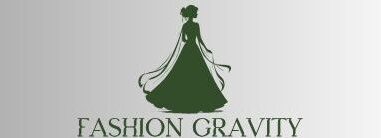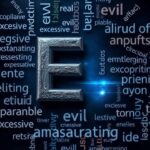Exploring the enigmatic world of negative Z words reveals a fascinating linguistic landscape where zealotry meets zombie culture and zero takes on powerful connotations.
The letter Z, positioned boldly at the alphabet’s end, introduces us to an impressive array of vocabulary with negative implications, from common terms describing unpleasant personality traits to obscure terminology hidden in ancient texts.
Whether you’re a wordsmith seeking to expand your negative vocabulary beginning with Z or simply curious about unusual Z words in English, this comprehensive guide uncovers 300+ Z-letter terms with darker meanings, enriching your lexicon while demonstrating how even the alphabet’s final letter carries significant weight in conveying criticism, flaws, and unfavorable conditions.
Zealot, Zero, Zombie
The formidable letter Z introduces us to three particularly potent negative words – zealot, zero, and zombie – each carrying distinctive connotations that have permeated modern culture and everyday language.
Zealot represents dangerous extremism, describing individuals consumed by fanatical devotion to beliefs, often leading to intolerance, aggression, and harmful zealotry that rejects all opposing viewpoints.
Zero, while mathematically neutral, has evolved into a powerful metaphor for nothingness, failure, and insignificance, with calling someone “a zero” implying they hold no value or importance.
Zombies, those reanimated corpses from folklore and pop culture, symbolize mindlessness and conformity, serving as a metaphor for unthinking followers or those living without purpose or conscious thought.
These three Z words encapsulate different dimensions of negativity – extremism, emptiness, and mindlessness – demonstrating how the letter Z, despite its limited usage in English vocabulary, connects to profound negative concepts that resonate through our cultural consciousness and daily expressions of criticism.
Negative Words That Start With Z To Describe A Person Or Thing
The English lexicon offers numerous Z words with negative connotations specifically designed to describe unfavorable qualities in people and objects, providing precise vocabulary for criticism and negative descriptions. “Zonked” perfectly captures extreme exhaustion, describing someone so thoroughly fatigued they can barely function – a state many experience after all-nighters or prolonged mental exertion that affects cognitive abilities and physical performance.
“Zany” initially seems positive but often carries undertones of excessive oddness or inappropriate behavior, suggesting someone whose eccentricity crosses boundaries into the uncomfortable or unprofessional.
“Zealous” walks a delicate line – while enthusiasm itself isn’t negative, zealousness often implies excessive fervor that blinds one to reason, leading to fanatic adherence to ideas without critical thinking.
“Zapped” describes something suddenly drained of energy or effectiveness, while “zoolike” compares environments or behaviors to chaotic, uncontrolled animal habitats, suggesting disorder and primitive conditions.
Other descriptive negative Z words include “zigzag” (implying inconsistency), “zeroth” (suggesting something fundamental yet overlooked), “zoological” (when used to compare human behavior to animals), “zibeline” (describing something dark or gloomy), and “zygomatic” (relating to facial expressions of displeasure).
These terms offer precise vocabulary for articulating criticism, with each word targeting specific undesirable qualities ranging from exhaustion and oddity to fanaticism and chaos, enriching our Z letter vocabulary for describing negative traits.
- Zealot
- Zero
- Zany
- Zapped
- Zealless
- Zigzagging
- Zonked
- Zombie-like
- Zestless
- Zoomed-out
- Zoned-out
- Zipless
- Zoning
- Zapped-out
- Zigzag
- Zapped
- Zanier
- Zealous
- Zionist
- Zesty
- Zilch
- Zapped-out
- Zookeeper
- Zero-minded
- Zenless
- Zillionth
- Zizzing
- Zany-looking
- Zealotry
- Zapped-minded
- Zero-sum
- Zingy
- Zesty-less
- Zero-respect
- Zapped-energy
Adverbs Starting With The Letter Z
The realm of Z-beginning adverbs provides colorful linguistic tools for describing how actions are performed negatively or unfavorably, enhancing our ability to convey criticism precisely.
“Zestlessly” stands as perhaps the most commonly used negative Z adverb, describing actions performed without enthusiasm, passion, or energy – contrasting sharply with its positive counterpart “zestily” or “zestfully” which imply vibrant enthusiasm.
“Zealously” often carries negative connotations when describing fanatical devotion to causes or beliefs, suggesting excessive, unreasonable commitment that blinds one to alternative perspectives.
“Zanily” describes behavior performed in an excessively odd or inappropriate manner, suggesting actions that cross from uniquely creative into the realm of bizarre or unsuitable.
“Zigzaggedly” and “zigzaggingly” convey inconsistency and unpredictability in movement or thought processes, implying an inability to maintain a straight, reliable course of action.
Other negative adverbs with Z include “zoogeographically” (relating to animal-like territorial behavior), “zionistically” (referring to extreme political views), “zootomically” (relating to dissection or breaking down), “zoomorphically” (in a manner attributing animal characteristics to humans), and “zygomorphically” (referring to irregular development or asymmetrical patterns).
These negative adverbs with Z provide nuanced vocabulary for expressing how actions can be performed in ways that deserve criticism, from the lack of enthusiasm in “zestlessly” to the excessive fervor in “zealously,” enriching our ability to precisely describe problematic behaviors and methods.
- Zealously
- Zanily
- Zestfully
- Zippily
- Zestily
- Zealotry
- Zestlessly
- Zonally
- Zoologically
- Zigzaggingly
- Zestily
- Zombielike
- Zingily
- Zingingly
- Zoomorphically
- Zoogeographically
- Zenithal
- Zestlessly
- Zealously
- Zestily
- Zigzagly
- Zoomingly
- Zealotically
- Zonedly
- Zenithally
- Zoologically
- Zymotically
- Zymologically
- Zealously
- Zippingly
- Zestfully
- Zedfully
- Zavijavo (Slovenian: “howlingly”)
- Zärtlich (German: “tenderly”)
- Zinglish
- Zestfully
- Zodiacally
- Zonally
- Zoomingly
- Zymurgically
- Zymotechnically
- Zymotically
- Zoomorphically
- Zygotically
- Zuverlässig (German: “reliably”)
Obscure Words Beginning With The Letter Z
Delving into obscure Z words reveals a treasure trove of negative terminology that, while rarely used in everyday conversation, offers fascinating insights into historical perspectives on undesirable traits and concepts.
“Zenith,” while seemingly positive as it refers to the highest point, carries negative implications when discussing something that has reached its peak and can only decline thereafter, representing the beginning of inevitable downfall.
“Zelotypia” describes a morbid, excessive form of jealousy or suspicion that borders on psychological disorder, far beyond healthy concern.
“Zabernism” references military brutality or abuse of power, derived from a historical incident in Zabern, Germany, where military authorities overstepped civilian rights.
“Zealatry” denotes excessive devotion that crosses into dangerous fanaticism, while “zealotry” describes the behaviors and attitudes of those who prioritize their beliefs above all rational thought or human consideration.
“Zoanthropy,” a particularly unusual term, refers to the psychological delusion where someone believes they have transformed into an animal – a rare but documented psychiatric condition representing a complete disconnection from human identity.
“Zelatrix” names a female zealot or fanatic, specifically gendering extremist behavior. “Zoilist” describes a harsh, unfair critic who finds fault excessively – named after Zoilus, an ancient Greek critic notorious for his severe criticism of Homer.
Other fascinating obscure negative Z vocabulary includes “zugzwang” (a situation where any move made worsens one’s position), “zwodder” (a drowsy, foggy state of mind), “zymotic” (relating to infectious diseases), and “zamarra” (a shepherd’s garment, sometimes used metaphorically to describe rough, unsophisticated character).
These obscure Z words for criticism and negative description demonstrate how even rarely-used vocabulary can precisely capture specific forms of negativity, enriching our understanding of how language has historically documented unfavorable human traits and circumstances.
- Zabernism
- Zaftig
- Zaim
- Zakat
- Zalambdodont
- Zamarra
- Zamboni
- Zanella
- Zanyism
- Zapateado
- Zarf
- Zati
- Zawn
- Zealotism
- Zebrine
- Zebrula
- Zedoary
- Zein
- Zelatrix
- Zelig
- Zemindar
- Zenana
- Zend
- Zendo
- Zenic
- Zeolite
- Zephyrean
- Zephyrous
- Zerda
- Zeriba
- Zeroate
- Zestful
- Zetetic
- Zeugma
- Zeuxis
- Zibeline
- Ziggurat
- Zigzaggedness
- Zillah
- Zimb
- Zingaro
- Zinkenite
- Zinnia
- Zircaloy
- Zirconiferous
- Zither
- Zittern
- Zizith
- Zizz
- Zoanthropy
- Zoarium
- Zobo
- Zocalo
- Zocco
- Zoetic
- Zoilus
- Zoism
- Zoist
- Zoogamy
- Zoomastigote
- Zoomorphism
- Zoopathology
- Zoophagous
- Zoophilia
- Zoophyte
- Zoosemiotics
- Zoosperm
- Zootaxy
- Zootomy
- Zootrophic
- Zooxanthella
- Zoroastrian
- Zorilla
- Zoster
- Zouave
- Zounds
- Zubr
- Zuffolo
- Zugzwang
- Zymurgy
Unusual Words Beginning With The Letter Z
The category of unusual Z words offers particularly exotic and specialized negative terminology that provides precision for describing specific unfavorable conditions, beliefs, and behaviors.
“Zoomancy,” a fascinating term from ancient divination practices, refers to interpreting animal behavior as omens – a practice now regarded skeptically as superstition rather than legitimate forecasting.
“Zoomorphism,” the attribution of animal characteristics to humans, carries negative connotations when used to dehumanize individuals or groups by comparing them to beasts.
“Zelophobia” describes an irrational fear of jealousy, representing anxiety about either feeling jealous or becoming the target of others’ jealousy.
“Zoophagy” specifically refers to animal-eating, but carries negative implications when describing excessive consumption or cruel eating practices. “Zoanthropy,” mentioned earlier, finds company with related terms like “zoanthropism” and “zoanthropic,” all referring to the delusional belief of transformation into animals.
“Zoolatry,” the worship of animals as divine beings, is often viewed negatively by major religions as misplaced devotion.
“Zoophobia” encompasses various specific fears of animals, representing debilitating anxiety that limits normal functioning. “Zoonosology” studies diseases transmitted from animals to humans, documenting dangerous cross-species infections.
“Zygomorphic,” when applied to human development or society, suggests asymmetrical or irregular growth patterns. “Zymotic” specifically describes infectious diseases caused by fermentation processes, connecting to historical understanding of contamination and illness.
Other unusual negative Z words include “zenocentric” (viewing foreign concepts as inferior), “zendik” (referring to heretics in certain religious contexts), “zugzwang” (a no-win situation from chess terminology), and “zoophilous” (attracted to animals, potentially in inappropriate ways).
These unusual Z words in English demonstrate how specialized terminology can capture precise forms of negativity, from psychological disorders to infectious diseases to philosophical prejudices, enriching our Z-related vocabulary for describing specific negative conditions.
- Zabaglione
- Zabernism
- Zaftig
- Zagazig
- Zaim
- Zakat
- Zamarra
- Zambo
- Zamindar
- Zanella
- Zapateado
- Zapatero
- Zaphara
- Zarf
- Zati
- Zawn
- Zealotism
- Zebec
- Zebrine
- Zebrula
- Zebu
- Zedoary
- Zein
- Zelatrix
- Zelotype
- Zemi
- Zemindar
- Zenana
- Zend
- Zendo
- Zeolite
- Zephyrean
- Zephyrous
- Zerda
- Zeriba
- Zeroth
- Zetetic
- Zeugma
- Zeuxis
- Zibeline
- Ziggurat
- Zigzaggedness
- Zillah
- Zimb
- Zimocca
- Zingaro
- Zinkenite
- Zinnia
- Zippicamiknicks
- Zircaloy
- Zircon
- Zirconia
- Zirconiferous
- Zither
- Zittern
- Zizith
- Zizz
- Zoanthropy
- Zoarium
- Zobo
- Zocalo
- Zocco
- Zoetic
- Zoftig
- Zoilus
- Zoism
- Zoist
- Zoogamy
- Zoomania
- Zoomastigote
- Zoometry
- Zoomorphism
- Zoopathology
- Zoophagous
- Zoophilia
- Zoophyte
- Zoopsychology
- Zoosperm
- Zootechny
- Zootheism
- Zootomy
- Zootrophic
- Zooxanthella
- Zoroastrian
- Zorilla
- Zoster
- Zouave
- Zounds
- Zubr
- Zuffolo
- Zugzwang
- Zuhrah
- Zuisin
- Zuleika
- Zuluize
- Zunian
- Zupan
- Zuppa
- Zurbaranesque
- Zurna
- Zushio
- Zwieback
- Zwitterion
- Zygapophysis
- Zygodactyl
- Zygoma
- Zygomorphic
- Zygosity
- Zymase
- Zymurgy
More Vocabulary Beginning With The Letter Z
Beyond the specialized categories, the Z-letter English lexicon contains additional negative vocabulary worth exploring for those seeking to expand their command of critical terminology and unfavorable descriptions.
“Ziggurat,” while architecturally impressive as ancient Mesopotamian temples, carried negative associations with human sacrifice and authoritarian religious control in some historical contexts.
“Zaniness,” when excessive, transforms from charming eccentricity into concerning behavior that disrupts social norms and professional environments.
“Zeitgeist,” referring to the spirit of a particular time period, takes on negative connotations when describing cultural moments dominated by harmful ideologies or destructive social trends.
“Zestlessness” describes a profound lack of enthusiasm or passion that prevents engagement and achievement, representing a state of emotional and motivational deficit. “Zoological,” when applied to human behavior, suggests primitive, animalistic conduct lacking proper civilized restraint.
“Zymology,” the study of fermentation, connects to spoilage and decomposition processes. “Zealotism” encompasses the entire philosophical approach of uncompromising extremism that rejects moderation and dialogue.
“Zemblanity” stands as the opposite of serendipity, describing unhappy discoveries made inevitable by actions, representing predictable misfortune resulting from poor choices. “Zeroable” describes something that can be reduced to nothing, implying vulnerability to complete destruction or erasure.
“Zigzaggery” refers to inconsistent, unpredictable behavior that prevents reliable planning or trust. “Zymolysis” describes breakdown through fermentation, metaphorically applicable to social decay.
“Zizz” captures the uncomfortable buzzing of insects or machinery, creating irritation and distraction. “Zoom-fatigue” represents the modern exhaustion from excessive video conferencing.
“Zombification” describes the process of rendering something mindless or automatic, whether literally in fiction or metaphorically in societal criticism.
“Zero-sum” thinking represents a negative worldview where one person’s gain must come at another’s loss, preventing collaborative solutions.
This additional Z vocabulary demonstrates the letter’s surprising versatility in expressing various dimensions of negativity, from architectural associations with ancient religious control to modern digital exhaustion, enriching our lexicon for precise criticism across historical and contemporary contexts.
- Zabaglione
- Zabernism
- Zaftig
- Zaim
- Zakat
- Zamarra
- Zambo
- Zamindar
- Zanella
- Zapateado
- Zaphara
- Zarf
- Zati
- Zawn
- Zealot
- Zebec
- Zebrine
- Zebrula
- Zebu
- Zedoary
- Zein
- Zelatrix
- Zenana
- Zend
- Zendo
- Zeolite
- Zephyrean
- Zephyrous
- Zerda
- Zeriba
- Zeroth
- Zetetic
- Zeugma
- Zibeline
- Ziggurat
- Zigzag
- Zillah
- Zimb
- Zimocca
- Zingaro
- Zinkenite
- Zinnia
- Zircaloy
- Zircon
- Zirconia
- Zirconiferous
- Zither
- Zittern
- Zizz
- Zoanthropy
- Zoarium
- Zobo
- Zocalo
- Zoetic
- Zoilus
- Zoism
- Zoist
- Zoogamy
- Zoomorphism
- Zoopathology
- Zoophagous
- Zoophilia
- Zoophyte
- Zoosperm
- Zootaxy
- Zootomy
- Zootrophic
- Zooxanthella
- Zoroastrian
- Zorilla
- Zoster
- Zouave
- Zounds
- Zubr
- Zugzwang
FAQ’s
What are the most common negative Z words used in everyday language?
The most frequently used negative Z words include zealot (extreme fanatic), zero (nothing, failure), zombie (mindless follower), zonked (exhausted), zany (inappropriately odd), and zealous (excessively enthusiastic).
How can I avoid zero-sum thinking in negotiations and relationships?
Overcome zero-sum thinking by identifying mutual benefits, focusing on creating value rather than just claiming it, separating people from problems, and exploring creative solutions that address underlying interests rather than fixed positions.
What’s the difference between zealous enthusiasm and harmful zealotry?
Zealous enthusiasm reflects strong passion within reasonable bounds, while zealotry crosses into harmful fanaticism that rejects all opposing views, dismisses evidence, and potentially endorses extreme measures to support beliefs.
How does zombie terminology reflect modern social criticism?
Zombie terminology serves as metaphorical criticism of mindless consumerism, blind conformity to social norms, technology addiction, and uncritical acceptance of information without independent thought.
Why are unusual Z words important for writers and communicators?
Unusual Z words provide precision, variety, and distinctiveness to writing, allowing communicators to express exact shades of meaning, create memorable content, demonstrate linguistic expertise, and avoid repetitive vocabulary.
READ MORE: https://fashiongravity.co.uk/negative-words-that-begin-with-w-in-2025/
Conclusion
The world of negative words that start with Z offers a fascinating linguistic journey from common terms like zealot and zombie to obscure vocabulary like zoomancy and zugzwang, demonstrating the surprising versatility of the alphabet’s final letter.
This extensive collection of Z words with negative connotations serves writers, speakers, and language enthusiasts seeking precise terminology to describe unfavorable traits, behaviors, and conditions across contexts ranging from everyday criticism to specialized fields.
By incorporating these negative Z-letter terms into your vocabulary, you enhance your expressive power while appreciating how even rarely-used letters in English can contribute significantly to our ability to articulate criticism, document flaws, and describe negative conditions with remarkable specificity and historical depth.

I’m Irfan, an experienced SEO content and SEO specialist with 2 years of expertise, currently contributing to Al Jazeera News Website.





